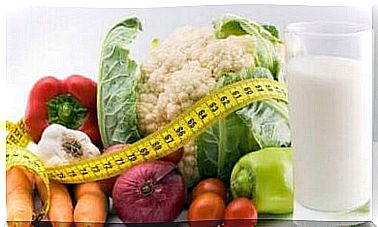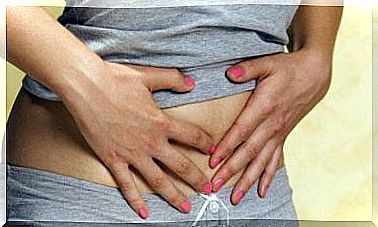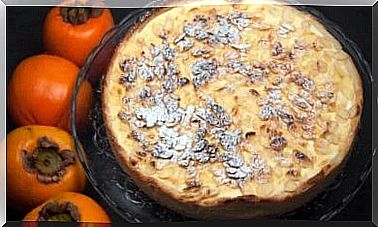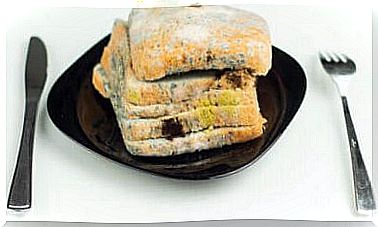Treating Irritable Bowel Syndrome: 6 Diets

To treat irritable bowel syndrome, you need to change your eating habits . In this article we propose 6 ideal diets for those suffering from this condition.
It is a disease that prefers women under 45, but of course it can also affect men and older people. This condition, which affects the large intestine, typically manifests itself with colic, gas, bloating, constipation and diarrhea.
Although it is a very common disorder, at the moment the exact causes are still to be defined. If you suspect that you are suffering from irritable bowel, do not hesitate to go to the doctor for a precise diagnosis.
6 diets to treat irritable bowel syndrome
Symptoms are annoying, but you can keep them under control by making some dietary changes. In reality, there is no complete agreement from doctors on the best diet to follow. In any case, the following general rules apply:
- Eliminate foods from the diet only on the advice of a doctor.
- Avoid carbonated drinks.
- Limit the consumption of fatty foods.
- Increase your fiber intake.
- Avoid meals that are too large.
- Drink between two and three liters of water per day.
- Avoid the consumption of legumes, cruciferous vegetables and other foods that can cause intestinal gas.
- Eliminate smoking and alcohol.
1. Low FODMAP diet
Diets that help treat irritable bowel syndrome include the low-FODMAP regimen. It is a diet based on a reduced consumption of short-chain carbohydrates such as oligosaccharides, disaccharides, monosaccharides and fermentable polyols.
How can reducing consumption of these foods relieve symptoms? Simple: many people are unable to absorb these nutrients in the small intestine and, therefore, continue their journey in the colon. Here, by feeding the bacterial colonies they ferment and cause the typical symptoms.
Some researchers argue that avoiding this type of carbohydrate limits the fermentation of food by bacteria and reduces discomfort. However, there are no conclusive studies in this regard.
According to the Spanish Society for Digestive Disorders, after a first phase of severe FODMAP limitation (between 4 and 8 weeks) it would be good to reintroduce food gradually. This is in order to check tolerance and calibrate the diet in the least restrictive way possible.
Note : Due to restrictions on some important foods, this diet must be followed under specialist medical supervision. The risks and benefits are in fact assessed on the basis of personal conditions.
2. Lactose-free diet
In the event that the doctor suspects lactose intolerance, a partial exclusion of dairy products for one or two months may be appropriate. At the end they will be reintroduced to observe tolerance.
3. Gluten-free diet to treat irritable bowel syndrome

According to some research, 30% of celiacs have previously been diagnosed with irritable bowel syndrome. For this reason, if you suspect gluten sensitivity or allergy, your doctor may recommend that you temporarily rule it out.
4. Diet against constipation
In case of irritable bowel syndrome with chronic constipation, some specialists recommend the consumption of foods rich in insoluble fiber that accelerate intestinal transit. They are present in vegetables and whole grains.
On the other hand, when episodes of diarrhea alternate with constipation, soluble fiber must be introduced into the diet. They are present in foods such as oats, barley, seeds and fruit.
5. If the main symptom is diarrhea
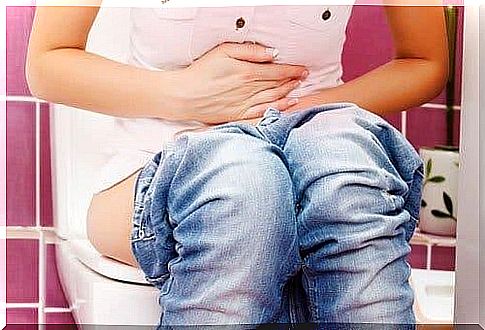
Diarrhea is a very common symptom in the case of irritable bowel. It requires extreme attention since the risk is of encountering side effects related to the malabsorption of essential nutrients.
People who often suffer from diarrhea should avoid the consumption of coffee and alcohol, two drinks that stimulate the intestine. The same goes for dairy products; in this case, however, do not forget to include alternative sources of calcium, such as soy milk.
6. Treating irritable bowel syndrome: foods recommended, limiting and avoiding
It would be impossible to make a complete list of the foods recommended and not recommended in irritable bowel syndrome because, as we have said, the diet must be personalized according to the symptoms and the individual response.
We do present, however, an indicative list of foods that can be considered recommended, restricted or prohibited.
Recommended foods:
- Wholemeal bread, wheat bran and whole grains.
- Eggs.
- Fruits and vegetables.
- Skimmed dairy products.
- Lean meats.
- Dried fruit.
- White fish.
- Olive oil in moderate quantities.
- Water.
- Infusions.
Foods to limit
- Blue fish.
- Cured meat.
- Vegetable.
Forbidden foods
- Vegetables that generate intestinal gas such as cauliflower or broccoli.
- Fatty cheeses and whole dairy products.
- Red meats and sausages.
- Industrial bread.
- Butter and margarine.
- Spicy foods
- Industrial sauces.
- Coffee.
- Alcohol.
- Carbonated drinks.
Note: these are generic dietary recommendations, not always applicable to everyone. It is therefore necessary to evaluate the patient’s tolerance; some of the foods considered “safe” could be annoying.
It is recommended that you consult your doctor before making any changes to your diet. The gastroenterologist is the most suitable specialist to plan the right meal plan based on symptoms and personal needs.






